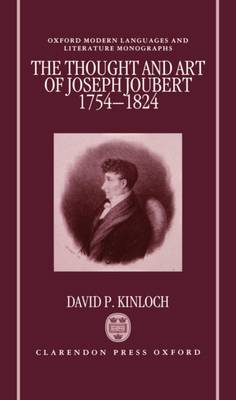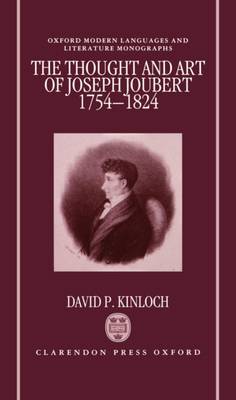
- Afhalen na 1 uur in een winkel met voorraad
- Gratis thuislevering in België vanaf € 30
- Ruim aanbod met 7 miljoen producten
- Afhalen na 1 uur in een winkel met voorraad
- Gratis thuislevering in België vanaf € 30
- Ruim aanbod met 7 miljoen producten
Zoeken
Omschrijving
This book rescues Joubert from the ranks of minor French moralistes and by tracing the development of his thought, from his time as secretary to Diderot through the period of his association with Chateaubriand, demonstrates that he was a writer on aesthetics of considerable sensitivity. Reading widely among philosophers and poets from Plato and Homer to Kant and André Chénier, Joubert consigned his thoughts and perceptions to a series of carnets which form the basis of this study and bear witness to an unusually eclectic and enquiring mind. Kinloch shows that Joubert's significance is not confined to the Enlightenment and Romantic periods--rather he is unique among writers of his day in the way that his own interrogation of the very act of writing anticipates the aesthetic of later, highly influential writers such as Stephane Mallarmé.
Specificaties
Betrokkenen
- Auteur(s):
- Uitgeverij:
Inhoud
- Aantal bladzijden:
- 248
- Taal:
- Engels
- Reeks:
Eigenschappen
- Productcode (EAN):
- 9780198151838
- Verschijningsdatum:
- 21/05/1992
- Uitvoering:
- Hardcover
- Formaat:
- Genaaid
- Afmetingen:
- 140 mm x 216 mm
- Gewicht:
- 467 g

Alleen bij Standaard Boekhandel
+ 244 punten op je klantenkaart van Standaard Boekhandel
Beoordelingen
We publiceren alleen reviews die voldoen aan de voorwaarden voor reviews. Bekijk onze voorwaarden voor reviews.











